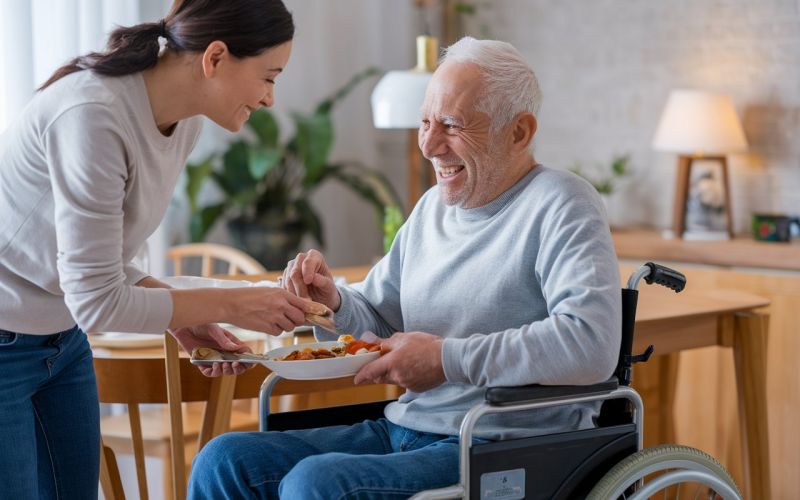10 Best Bath Time Tips for Caregivers of Senior Adults with Dementia
iSavta | 12.11.2020
Being caregivers to senior adults we may have gone through this difficulty: bath time for them especially if they have Dementia or Alzheimer’s. There might be a lot of reasons: discomfort, fear, or just plain refusal. These are just some of the best bath time tips for caregivers of senior adults with Dementia.

- Know what they like. You have to know what they prefer: a bath or a shower? What time of day do they want to take a bath, morning, noon or night? These things matter because you want them to agree and not flat out refuse the idea of a bath or cleaning for that matter. Some experienced caregivers recommend giving them a batch from morning to mid-day when the mind is more sharper. But it still depends on their preferences.
- Acknowledge their privacy and respect it. Put yourself in their shoes and you would also want some privacy when you clean yourself up. If possible, make sure that only you and your senior patient are the only ones in the room. Avoid more people also so to avoid awkwardness and discomfort for the elderly you are caring for.
- Plan and do activities before bath so you can lead them to a bath after. You can tell them that they need to get cleaned up. Such activities can be gardening, cooking, painting, and any other activities that you have.
- Turn the temperature a little so it will be comfortable for your senior patient to take off their clothes. It is easier to shed some clothes in a warm and cozy room than in a cold one.
- Approach the person in a non-threatening way. With Dementia patients, their peripheral vision gets smaller and smaller. It is recommended you approach them from the front so that they can see you. They will be feeling more comfortable when they see you.
- Communicating with Dementia patients should also involve non-verbals. Aside from step by step instructions to our patients, you also have to mimic your instructions with actions. Take for example if you want to wash their feet, you also have to point to your feet. Actions and non-verbals reinforce your message to the Dementia patient.
- Always maintain a physical connection. Touch is very important for aging adults and especially those with Dementia and Alzheimer's. Touch also creates a sense of comfort and security to the senior adult you are caring for, letting them know that you are there for them along the way. Put a hand on their shoulder or touch their elbows when they are walking so you can let them know your support in case they have sudden imbalance issues or if they slip.
- Safety is really important. To avoid injuries, make sure that you have already installed grab bars. This will also make them feel safe and reduce the fear of falling while taking a bath. You can also put a shower chair for them to sit and a handheld shower which will be easier for them to use than standing up in a regular shower.
- Assist only when needed. Your senior might totally refuse for you taking over a very private thing for them like taking a bath. Of course, they have been independent for many years prior to you coming into their lives. Let them take a bath themselves and maybe you can reassure them that you are just outside the bathroom if they needed help.
- Cleaning doesn’t equal a full bath or shower. Cleaning can also be a sponge bath, towel wipes, or just hair shampooing. As long as they are clean, kept, and without body odor, then we can agree on a scheduled full bath for the week. Otherwise, there are alternatives to one.
Our main goal for bath time is not to force them to take a bath whenever we want to. Caregiving is all about giving care and compassion to an older adult who needs our assistance. You can always find one reason or another to agree with you. Always start and end with care.












